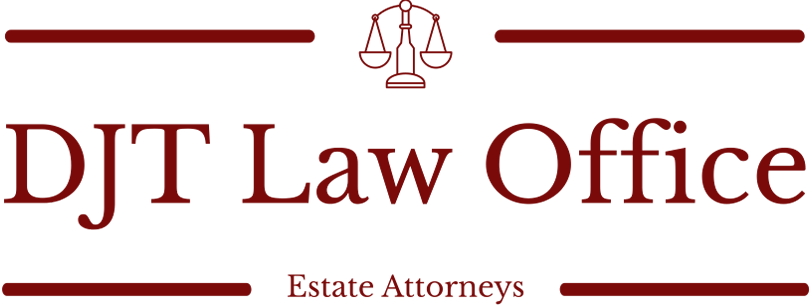Estate Planning Attorney
No Fee Initial Consultation
Why develop an Estate Plan?
We all have unique needs and circumstances. Whether you are married with kids, or a single adult, you should have an estate plan to protect your assets, loved ones and personal care in the future.
An Estate Plan is intended to aid when an inevitable event such as Disability or Death occurs.
- How are medical decisions made for you if you cannot express your wishes?
- If you are deemed to be unable to handle your own financial affairs, what do you do?
- What would happen to your real estate if you died? The rest of your assets?
- Would estate taxes, probate fees, and other administrative or legal costs be held to a minimum?
- What contingencies do I have in place if I died, while my children were still young or minors?
- Who would care for my children or aging parents?
Get a free consultation!
Estate Planning Page Form
Thank you for contacting us.
We will get back to you as soon as possible.
Oops, there was an error sending your message. Please try again later.
Visit with me for one hour (at no cost) and I promise that you'll quickly learn which options will give you the most peace, in language you will understand.
Until you are ready to learn more, you may grasp the essence of estate planning by reviewing the following:
What legal documents are basic in any Estate Plan?
- Because everyone is different it is difficult to generalize. However, most of us need the first three of the fundamental legal documents referred to below.
- Durable Power of Attorney
- Health Care Proxy
- A Will
- Living Trust (More and more of us need a Trust of some kind, but the specifics of why you need a trust and what kind of trust will serve you
best requires more discussion.)
A Durable Power of Attorney -
The Durable Power of Attorney is a written document which allows you (the Principal) to designate someone you trust (the Attorney-in-Fact) to make Personal, Business and Financial decisions for you in the event of illness or incapacity. The Durable Power of Attorney allows you to name someone who could take over your personal finances, pay your bills, sign a deed or bill of sale, sign you in or out of a hospital or rehabilitation hospital, make gifts, deal with the IRS, deal with your insurance company or stockbroker, purchase an annuity or engage in Medicaid or long term care planning on your behalf. A well-drafted Durable Power of Attorney will enable your Attorney-In-Fact to do anything you could as if you were personally present.
A Durable Power of Attorney can be broadly defined or it can be very specific. It depends upon what one wants or needs.
A Durable Power of Attorney does not necessarily take effect at the time of signing. A Power of Attorney can "spring" into effect only upon the principal's incapacity or disability whether sudden (an accident or a stroke) or gradual (Alzheimer's disease or mental weakness/illness).
A Durable Power Of Attorney should be signed while one is in good health. It is preferable to have discussed the Durable Power of Attorney beforehand and make sure the Attorney-In-Fact named in the document agrees to serve and understands what he or she is expected to do. A Durable Power of Attorney needs to be witnessed and be signed in the presence of a Notary Public.
A Durable Power of Attorney has its drawbacks. If it is too old a bank or investment company may not accept it. If it does not reference the particular use that you need it for its intent may also fail.
Even if you have a Durable Power of Attorney you should have it reviewed every three years to see if it is still sufficient.
Health Care Proxy -
A Health Care Proxy is a relatively straightforward legal document that one signs designating another person to make any and all care decision for him/her in the event of illness or incapacity. The person who is appointed is called a health care agent. The agent is authorized to act only if the attending physician determines in writing that you lack the capacity to make or communicate health care decisions. The decision-making authority includes the authority to make decisions about life sustaining treatment.
Again, similar to the Durable Power of Attorney a properly drafted Health Care Proxy will have sufficient detail to cover most if not all consequences. A general announcement naming someone to make all medical decisions for you is not sufficient.
A Will -
A Will is a document which, among other things, directs how your property will be disposed of after your death. It is also used to name a Guardian for your minor children in the event of a simultaneous death. The Will also allows you to choose the person or persons who you want to manage your Estate. If you do not have a Will, your property will be distributed according to the Statutory Laws of the Commonwealth, which may or may not be in accord with your wishes. Additionally, virtually anyone, including your creditors could petition the Probate Court for permission to administer your estate if you have not appointed an Executor through a Will. Important to Note: The use of a Will is part of the Probate Process, it does NOT AVOID PROBATE.
Serving Belmont and MetroWest Massachusetts since 1992
Why choose DJT Law
We are a general practice office, emphasizing estate planning, probate, and all aspects of buying and selling residential real estate. We provide a unique combination of knowledge, experience and compassion where issues of elder and real estate law intersect. Our clients feel confident working with us because they know that we are committed to delivering truly personalized attention — just like law practices provided a century ago! We have been serving families in Belmont and MetroWest Boston since 1992. We look forward to serving you!








